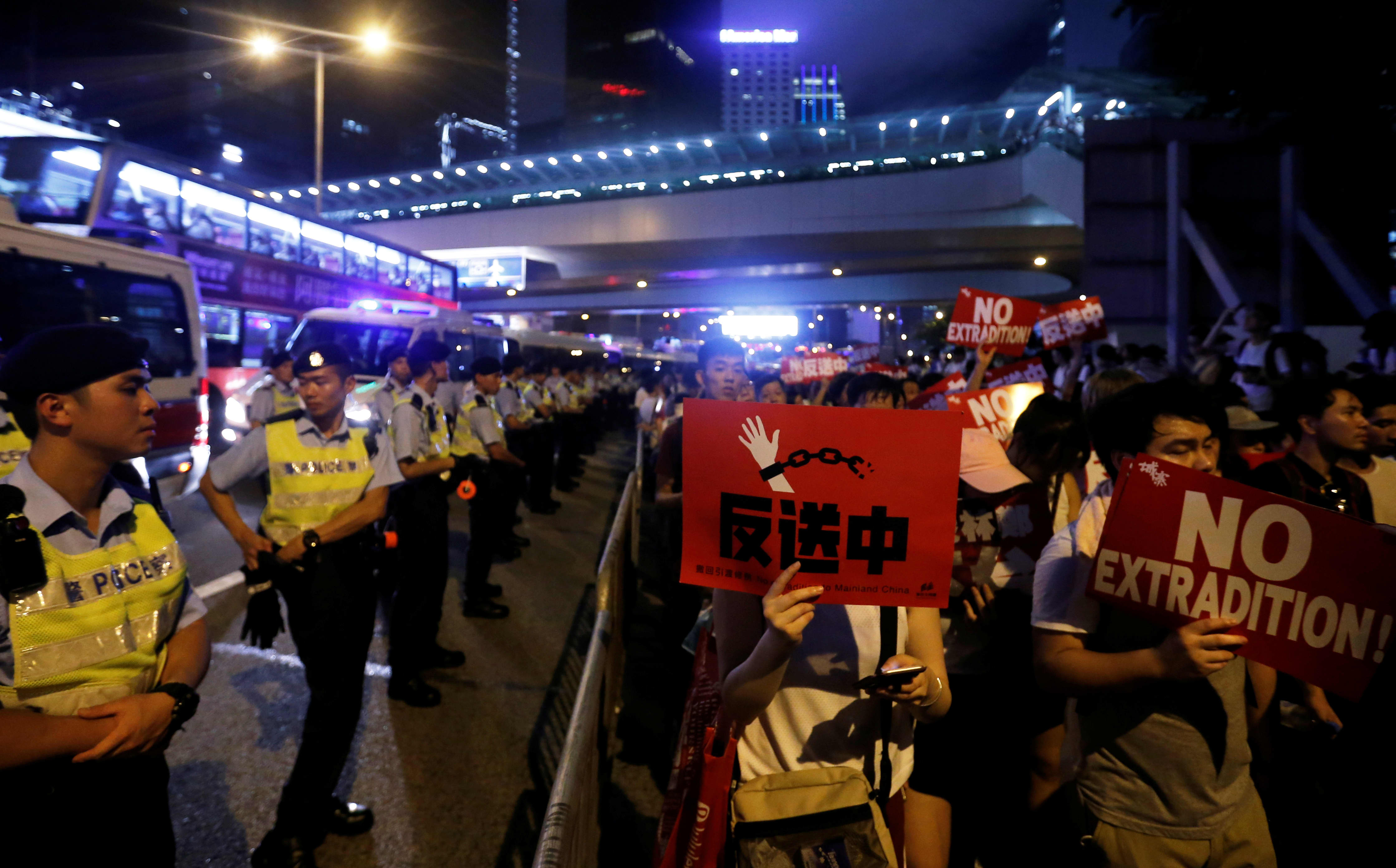'We have the voice': More than 200,000 Hong Kong protesters blast China extradition plan - 5 minutes read

A Hong Kong protest rally on June 9, 2019.
Kelly Olsen | CNBC
Protesters estimated at more than 200,000 marched through Hong Kong on Sunday in a mass rally calling for the withdrawal of a local government proposal to allow fugitives to be handed over to authorities in China, marking one of the biggest demonstrations in the city in years.
Hong Kong, an important global trade and finance hub of about 7.4 million people, has for nearly 22 years been a semi-autonomous region of the People's Republic of China with its own legal system, a legacy of its time as a British colony.
Opposition to legal amendments under debate to allow extraditions for certain crimes to jurisdictions with which Hong Kong has no such agreement — including the Chinese mainland — has been increasing for weeks, with an array of groups, including local lawmakers, legal and business organizations and even foreign governments expressing concern.
Shouting "oppose extradition to China," huge crowds of demonstrators marched peacefully along a main thoroughfare in sweltering humidity. Many held up signs or carried large banners expressing the same sentiment.
Local media cited organizers as claiming that one million people joined the rally, though police estimated a figure of 240,000 at its peak. That number was far larger than the previous large-scale rally on the issue on April 28 which police said at the time drew about 22,800 people, yet short of the half million that reportedly took part in a protest in 2003 over a proposed security law.
Local television news showed footage of police struggling to control crowds. A police spokeswoman said that a total of seven men were arrested for alleged offenses including assaulting police officers.
The growing extradition controversy underscores growing unease over what is seen as increasing Chinese political influence in local affairs and worries the Hong Kong government has little recourse but to accept it.
In 2014, Hong Kong was shaken by rallies calling for a greater local say in how the territory's chief executive, the top official, is elected. Under the current system, only figures acceptable to the Chinese central government can run for the office.
Local pro-democracy organization Demosisto, which played a leading role in the protests five years ago, said in a statement Sunday that it was launching a "peaceful" sit-in outside the Legislative Council, the local assembly that must approve the extradition proposal, in a bid to block it.
Opponents of the plan say that Hong Kong's autonomy, guaranteed for at least 50 years under a Sino-British agreement negotiated ahead of the handover on July 1, 1997, is in danger of further erosion .
People in Hong Kong shout slogans at a protest rally on June 9, 2019 against legal changes proposed by the local government that, if passed, could allow extraditions to mainland China.
Kelly Olsen | CNBC
'We have the voice'
The Hong Kong government says fears that the territory's legal, political and economic system is in danger of compromise are unfounded and reiterated that view Sunday.
"It is not correct to state or imply that the proposal will in any way impact on, interfere with, or have a chilling effect on the freedom of assembly, of the press, of speech, of academic freedom or publication; or relate to offences of a political nature," it said in an email to journalists ahead of the demonstration.
It cited "all the safeguards and human rights protections of the existing" law and stressed that the bar for handing anyone over is even higher under the proposed changes.
But Hong Kong resident Man Tang, who joined the demonstration, dismissed that, saying she doesn't trust the government and thinks anyone could ultimately end up in a Chinese jail.
"I think we still need to stand up to speak out and let the government, or let the world, know our voice," Tang said, even though she added it is unclear if it will have any impact. "We have the voice, we have to speak out."
People in Hong Kong march in a protest rally on June 9, 2019.
Kelly Olsen | CNBC
The government says the legal changes are necessary, citing a case last year when a Hong Kong man allegedly killed his girlfriend while in Taiwan before subsequently returning home. The government says he can't currently be extradited to Taiwan, though legal critics reject that interpretation and say there are various ad hoc measures it could take.
The Chinese government has called the issue an internal affair of Hong Kong, but is also on record as supporting the changes.
"They will only improve instead of undermining the rule of law in (Hong Kong), and better safeguard the rights and freedoms that Hong Kong residents enjoy in accordance with law," the foreign ministry's local office said on its website on May 31.
A spokesman for the office could not immediately be reached for comment Sunday on the protest.
The latest demonstration comes at a sensitive time, sandwiched between the 30th anniversary of the Chinese crackdown on political protests in Beijing's Tiananmen Square on June 4 and the upcoming anniversary of Hong Kong's return to Chinese control.
Tens of thousands gathered in Hong Kong on June 4 to commemorate the Tiananmen anniversary, in stark contrast to the mainland where such gatherings are forbidden.